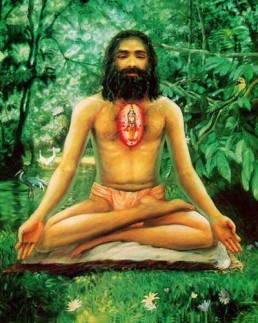Patanjali Yogasutra Introduction
Part 1 – Samādhi-pāda – Yoga and its Aims
1.1
1.2
1.3
1.4
1.5
1.6
1.7
1.8
1.9
1.10
1.11
1.12
1.13
1.14
1.15
1.16
1.17
1.18
1.19
1.20
1.21
1.22
1.23
1.24
1.25
1.26
1.27
1.28
1.29
1.30
1.31
1.32
1.33
1.34
1.35
1.36
1.37
1.38
1.39
1.40
1.41
1.42
1.43
1.44
1.45
1.46
1.47
1.48
1.49
1.50
1.51
Part 2 – Sādhana-pāda – Yoga and its Practice
2.1
2.2
2.3
2.4
2.5
2.6
2.7
2.8
2.9
2.10
2.11
2.12
2.13
2.14
2.15
2.16
2.17
2.18
2.19
2.20
2.21
2.22
2.23
2.24
2.25
2.26
2.27
2.28
2.29
2.30
2.31
2.32
2.33
2.34
2.35
2.36
2.37
2.38
2.39
2.40
2.41
2.42
2.43
2.44
2.45
2.46
2.47
2.48
2.49
2.50
2.51
2.52
2.53
2.54
2.55
Part 3 – Vibhūti-Pāda – Powers
3.1
3.2
3.3
3.4
3.5
3.6
3.7
3.8
3.9
3.10
3.11
3.12
3.13
3.14
3.15
3.16
3.17
3.18
3.19
3.20
3.21
3.22
3.23
3.24
3.25
3.26
3.27
3.28
3.29
3.30
3.31
3.32
3.33
3.34
3.35
3.36
3.37
3.38
3.39
3.40
3.41
3.42
3.43
3.44
3.45
3.46
3.47
3.48
3.49
3.50
3.51
3.52
3.53
3.54
3.55
3.56
Part 4 – Kaivalya-pāda – Liberation
4.1
4.2
4.3
4.4
4.5
4.6
4.7
4.8
4.9
4.10
4.11
4.12
4.13
4.14
4.15
4.16
4.17
4.18
4.19
4.20
4.21
4.22
4.23
4.24
4.25
4.26
4.27
4.28
4.29
4.30
4.31
4.32
4.33
4.34

Commentary on Sri Patanjali Yogasutra by Swami Vivekananda
We have seen in the foregoing aphorism that the only way of attaining to that superconsciousness is by concentration, and we have also seen that what hinders the mind from concentration are the past Samskaras, impressions. All of you have observed that, when you are trying to concentrate your mind, your thoughts wander. When you are trying to think of God, that is the very time these Samskaras appear. At other times they are not so active; but when you want them not, they are sure to be there, trying their best to crowd in your mind. Why should that be so? Why should they be much more potent at the time of concentration? It is because you are repressing them, and they react with all their force. At other times they do not react. How countless these old past impressions must be, all lodged somewhere in the Chitta, ready, waiting like tigers, to jump up! These have to be suppressed that the one idea which we want may arise, to the exclusion of the others. Instead they are all struggling to come up at the same time. These are the various powers of the Samskaras in hindering concentration of the mind. So this Samadhi which has just been given is the best to be practised, on account of its power of suppressing the Samskaras. The Samskara which will be raised by this sort of concentration will be so powerful that it will hinder the action of the others, and hold them in check.
Yogasutra – Verse 1.50 – Yogasutra-1.50-tajjaḥ saṃskāro – In Sanskrit with English Transliteration, Translation, Meaning and Commentary by Swami Vivekananda – Yogasutra-1-50
